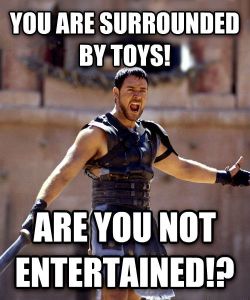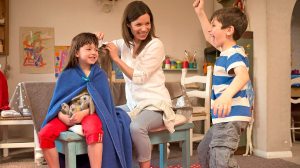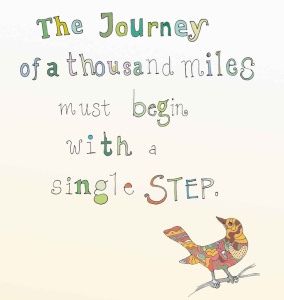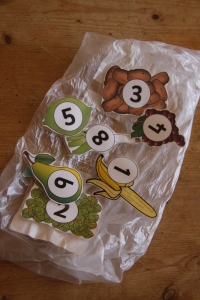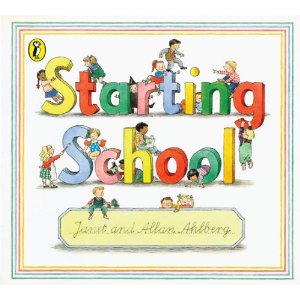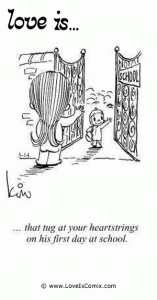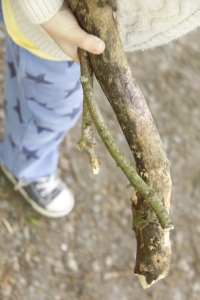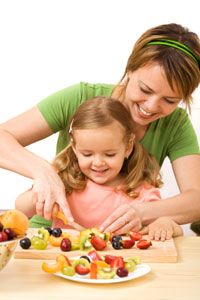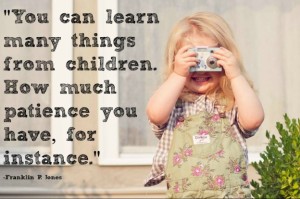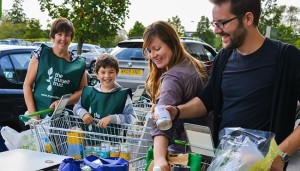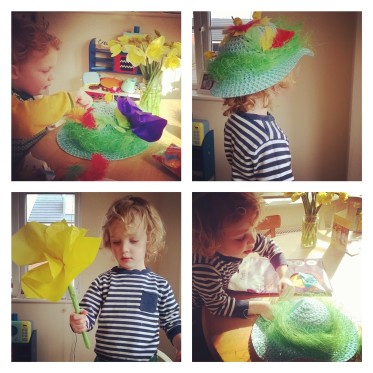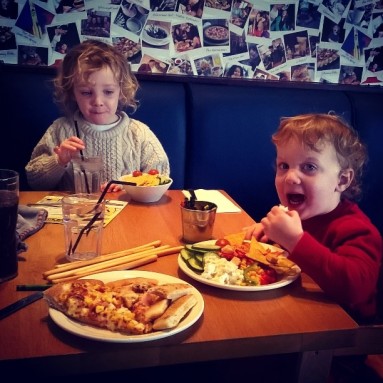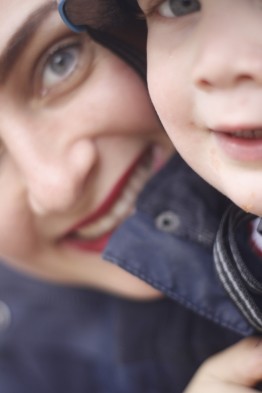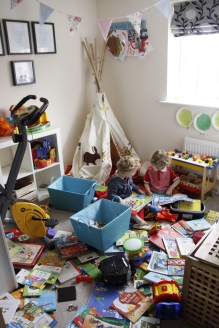Parenting is hard. No question about it. Just because people have been doing it for years it doesn’t mean it’s got any easier. In many ways the practicalities have simplified due to technological advancement (microwaves, slow cookers, televisions, smart phones, computers) but the really hard things about parenting have not changed at all. In fact some of those technological advances are the cause of many of the new difficulties. We live in the Information Age. Back in the day, you brought your children up how your mother and your grandmother brought you up, to a greater or lesser extent. Now extended families have dissipated and isolated parents turn to chat forums and Dr Google to work out what’s best. The trouble is that most of these things present the greyscale world in sharply defined tones of black and white. Real parenting is about balance, compromise, subtlety. Internet Parenting is about right and wrong, and often contradictory.
But you know it’s all there in black and white. It should be easy, shouldn’t it? Let’s take a look at the helpful advice you can use as a parent today.
It starts when you have a baby. Natural birth with the fewest amount of painkilling medicine is the best way to do it, but of course if you had to have an epidural or a caesarian that’s ok if it was necessary, although if you’d gone about giving birth properly it probably wouldn’t have been necessary, so you have probably failed. If you didn’t manage to Do It Properly then it’s your fault. If you did manage to Do It Properly then you are self-righteous and annoying.
You must breastfeed the baby, because breastfeeding is best, and you must do it in public so that other people know it’s acceptable, except when they are telling you it’s not, when you must show some degree of decorum. You must breastfeed to do the best thing for your baby unless your baby doesn’t follow the semi-arbitrary lines on the growth chart when you must immediately switch to formula feeding. If you formula feed you are Doing it Wrong unless you couldn’t breastfeed in which case you are Doing It Right, but only if you tried to breastfeed properly first, otherwise you are Doing It Wrong. Both methods of feeding your baby are right unless the person you are talking to disagrees with you.
You must spend the first six days/weeks/months with the baby in your room in order to establish a bond and to avoid SIDs. But you mustn’t put baby in your bed because of SIDs. However if you know what you are doing you can put the baby in your bed and this is the best and safest place for it to sleep. The best place for the baby to sleep is in its own room so it learns to sleep independently, but if you put it there it will be emotionally scarred for life. Never leave a baby to cry, but make sure you give it the opportunity to cry to help it learn how to put itself to sleep. Of course it’s not possible for a baby under 3 months/6 months/a year/six to learn to put themselves to sleep, but you can teach a baby to sleep from the age of 3 months/6 months/a year/six to put itself to sleep if you use the right method. You can use spaced soothing, crying it out, pick up put down, controlled crying or shh pat. None of these are harmful to your baby but all or some of them are harmful to your baby. If you don’t use them your baby will never sleep. If you do use them your baby will grow up with no confidence or self-esteem and may be permanently damaged. If you don’t get your baby to sleep you may be permanently damaged. A happy baby makes a happy parent. A happy parent makes a happy baby. Babies are never happy. Normal babies sleep through from six months. Normal babies don’t sleep through until they are six years old.
Babies thrive on routines but you can’t put a baby into a routine. You can put a baby into a routine but if you do it means you don’t listen to your baby. Your baby will eat and sleep well and be happy when in a routine but at the cost of their future mental health.
When you wean your baby, feed it the same things you eat, but don’t be surprised if it doesn’t like the things you eat. You will know your baby is ready for weaning when they can look at food/grab at food/hold food/throw food/sit up/stand up/do the hokey-cokey. Food is just for fun until they are one so it doesn’t matter how much they eat but if they don’t eat they will become iron-deficient. If you wean too early your baby may develop allergies. If you wean too late your baby may develop allergies. Your baby may develop allergies anyway.
Talk to your children all the time. Use lots of language to broaden their vocabulary and increase the development of their speech. Don’t use too much language as they will get confused and their speech development will be slower. If your baby isn’t talking don’t worry too much, it’s probably within the wide range of normal. If your baby isn’t talking you must immediately seek help as this is a red flag for certain disorders. Developmental health checks are really important so any issues can be flagged up quickly, but your health visitor knows nothing and you should ignore everything they say. Health visitors are an important source of knowledge.
You must expose your developing child to technology because in this modern world they need to know how to use it, but they should not spend too much time on there as it’s not good for their brains. Apps can be good for brain development and co-ordination. But if they spend too little time outdoors and too much time on computers their co-ordination will suffer. Children today need to be educated to survive in the modern world with its computing technology. Children today spend too little time outdoors simply playing and exploring.
Outside play is hugely important. You must let your children spend hours outdoors playing, preferably unsupervised. Never let your children play outside unsupervised. You must let your children take risks in order to grow and develop and understand their limitations. If you let your child take risks they will break their neck falling from badly maintained play equipment; be burned by giant hogweed; drown in two inches of water or be abducted the second you turn your back. Give your children opportunities to be independent and do things alone. Never let them do anything alone.
You must be present and involved to show you care about your child. Helicopter parents who care too much about their children are stunting their development. Give your child plenty of space to grow but not so much space they feel neglected. Somewhere there is an optimum amount of space but nobody knows what that is.
As a mother you should put your children first. As a mother you should put yourself first. If you go back to work you will not be spending enough time with your children, but if you don’t go back to work you will be setting them the wrong example about women and the workplace.
Children need boundaries and discipline. Discipline is very important. Disciplining your child is wrong and you should only use positive reinforcement. Positive reinforcement will mean your child has no sense of boundaries and will have no respect for anyone. Children who are disciplined are too respectful and fearful of authority. If you are too harsh on children they will become delinquent teenagers. If you are not harsh enough on children they will become delinquent teenagers. Isolating children gives them time to think about their behaviour and modify it. Isolating children makes them feel alone and ashamed and has no impact on behaviour. Reasoning with your spirited child is the best strategy in the long term, but will have no effect in the short term. Immediate consequences are the best strategy in the short term but will not be effective long term.
I’m sure there are many other examples, but in short it’s a minefield, both practically and emotionally. The only advice I would give to any new parent these days is go with your gut. There are a lot of ways to parent a child wrongly but also lot of ways to parent a child right. If you care enough to be thinking these issues through, chances are you’re a Good Parent. Stick with your instincts and revel in the absurdity of all this contradiction.

